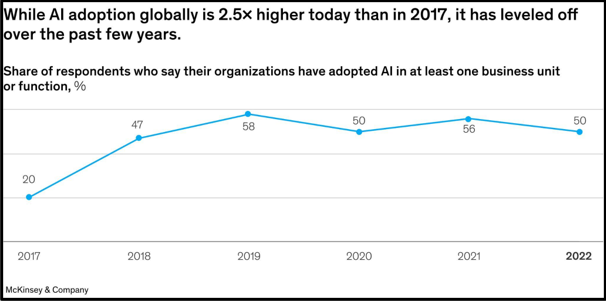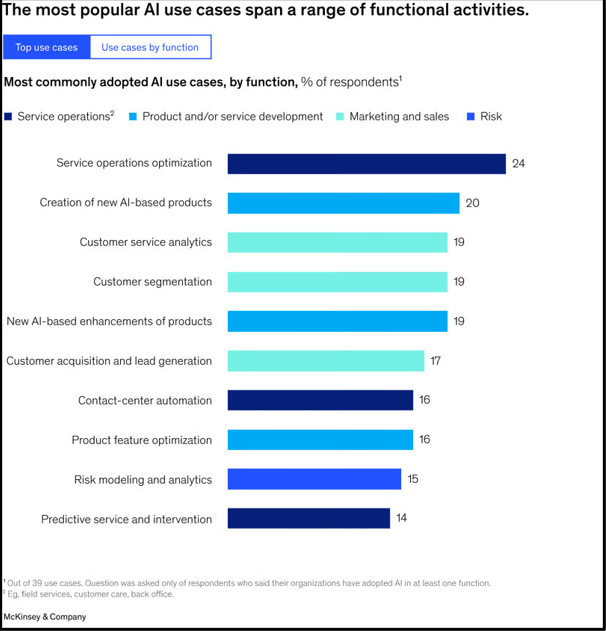Artificial Intelligence Drives Innovations Across Multiple Industries
June 24, 2023
Artificial Intelligence (AI) has become an integral part of our modern world, revolutionizing industries and transforming the way we live and work. With advancements in machine learning, deep learning, and natural language processing, AI is unlocking new possibilities and driving innovation across various domains. In this article, we will explore the recent innovations in AI and highlight notable tools such as Chat GPT and Bard that are shaping the AI landscape.

Recent Innovations in AI:
Deep Learning and Neural Networks: Deep learning has witnessed significant advancements, enabling AI systems to process complex data and make sophisticated decisions. Neural networks, inspired by the structure of the human brain, have been instrumental in achieving breakthroughs in computer vision, speech recognition, and natural language processing. These innovations have led to applications such as image classification, language translation, and voice assistants.
- Reinforcement Learning: Reinforcement learning has gained prominence in AI research. This approach involves training an agent to make sequential decisions by rewarding desirable behaviors. Reinforcement learning has been applied successfully in areas such as autonomous vehicles, robotics, and game playing, demonstrating its potential for real-world applications.
- Generative Adversarial Networks (GANs): GANs have revolutionized the field of generative modeling. By pitting a generator network against a discriminator network, GANs can create highly realistic synthetic data, including images, audio, and text. These advancements have found applications in computer graphics, data augmentation, and content creation.
- Natural Language Processing (NLP): NLP has experienced rapid progress, enabling AI systems to understand and generate human language. Innovations in NLP have led to the development of language models like Chat GPT and Bard, which are capable of engaging in human-like conversations, generating creative content, and providing personalized assistance.
- Computer vision:Computer vision is a field of AI that deals with the interpretation of visual data. Computer vision has also made significant progress in recent years, and it is now being used in a variety of applications, such as facial recognition and self-driving cars.
Emerging Tools: Chat GPT and Bard
- Chat GPT: Chat GPT, developed by OpenAI, is an advanced language model that utilizes deep learning to generate human-like text responses. It can engage in dynamic and contextually relevant conversations, making it useful in customer service, content creation, and virtual assistants. Chat GPT has the ability to understand and respond to user queries, provide recommendations, and assist with information retrieval.
- Bard: Bard is another AI-powered tool developed by Google. It focuses specifically on generating creative and engaging written content, such as poems, stories, and articles. By leveraging its vast knowledge base and contextual understanding, Bard can assist writers, marketers, and creative professionals in generating high-quality content that resonates with audiences.
The Future of AI:

As AI continues to evolve, its potential for impact across industries is vast. Some key areas that hold promise for future innovations include:
- Healthcare: AI can enhance medical diagnosis, drug discovery, and personalized treatment plans, leading to improved patient outcomes and more efficient healthcare systems.
- Autonomous Systems: Advancements in AI are driving the development of self-driving cars, drones, and robots, enabling them to perform complex tasks autonomously and safely.
- Data Analytics: AI-powered data analysis tools can uncover valuable insights from vast amounts of data, enabling businesses to make data-driven decisions and optimize operations.
However, not everything about AI is hunky dory. While artificial intelligence (AI) brings numerous benefits and opportunities, it is essential to recognize and address the risks associated with its deployment. Here are some key risks to consider:
- Bias and Discrimination: AI systems learn from data, and if the training data contains biases or discriminatory patterns, the AI models may inadvertently perpetuate these biases. This can lead to biased decision-making in areas such as hiring, lending, and criminal justice.
- Lack of Transparency: Some AI models, particularly complex deep learning networks, can be opaque and difficult to interpret. The lack of understanding of AI’s decision-making process can hinder accountability, trust, and the ability to identify and rectify errors or biases.
- Data Privacy and Security: AI relies on vast amounts of data, and the collection and use of personal or sensitive information can pose privacy risks.
- Unemployment and Job Displacement: AI and automation have the potential to replace certain tasks and jobs, leading to concerns about unemployment and job displacement.
- Ethical Decision-Making: AI systems may face situations where they need to make ethical decisions, such as in autonomous vehicles or healthcare.
- Adversarial Attacks: AI models can be susceptible to adversarial attacks, where malicious actors intentionally manipulate inputs to deceive or mislead the AI system.
- Dependence and Overreliance: Over-reliance on AI systems without appropriate human oversight can lead to unintended consequences.
- Regulatory and Legal Challenges: The rapid development of AI has outpaced the establishment of comprehensive regulatory frameworks.
Conclusion:
The field of artificial intelligence is witnessing rapid advancements, driven by breakthroughs in deep learning, neural networks, and natural language processing. Recent innovations have paved the way for powerful tools like Chat GPT and Bard, which are revolutionizing communication and content generation. As AI continues to evolve, its potential to transform industries and improve human lives is immense. With responsible development and ethical considerations, AI will shape our future in unprecedented ways, offering exciting opportunities for innovation and growth.
